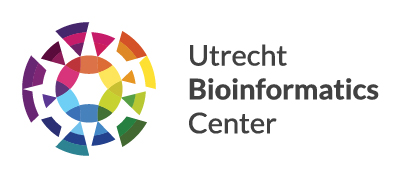The Utrecht Computational Structural Biology group will be part of two large European consortia
- the EGI-Engage project (8 million budget), funded under the Horizon 2020 e-Infrastructure programme (H2020: Research & Innovation Actions (RIA)).
- and the INDIGO-DataCLoud project (11 million budget), funded under the Horizon 2020 e-Infrastructure programme (H2020-EINFRA-2014-2 call).
The first project aims at developing a data/computing platform targeted at scientific communities, deployable on multiple hardware, and provisioned over hybrid (private or public) e-infrastructures. The platform will be built by a consortium of 26 partners from 13 different countries under the coordination of INFN (Istituto Nazionale di Fisica Nucleare). The team gathers leading European developers, resource providers, e-infrastructures and scientific communities, including among others the European Grid Initiative (EGI) and the Florence NMR group (CIRMMP) with which the Utrecht group has long-standing collaborations.
Within this consortium, the Utrecht group will provide the connection to user communities in the Life Sciences and Structural Biology (e.g. the INSTRUCT ESFRIand WeNMR projects), and further develop and adapt its flagship software HADDOCK to test, make best use of the developed CLOUD solutions and offer software as a service.
The second project, EGI-Engage, is the project that supports the implementation of the European Grid Initiative vision of the Open Science Commons to allow researchers from all disciplines to easily connect to the most innovative ICT services, data, knowledge and expertise they need for performing collaborative excellent research. In the Open Science Commons, EGI-Engage will expand the capabilities of a European “backbone” for federation-enabling services for compute, storage, data, communication, knowledge and expertise, complementing community-specific capabilities. The project brings together consortium of 41 partners from a large number of European countries.
Within EGI-Engage, the Utrecht group will lead the MoBrain Competence Center to Serve Translational Research from Molecule to Brain. The main objective of MoBrain is to lower barriers for scientists to access modern e-Science solutions from micro to macro scales. By building on grid- and cloud-based infrastructures and on the existing expertise available within WeNMR – A Worldwide e-Infrastructure for NMR and Structural Biology – and NeuGrid4You (N4U) project – an e-Infrastructure project covering the area of brain and neurodegenerative disease research – MoBrain will kick-start the development of a larger, integrated, global science virtual research environment for life and brain scientists worldwide.
For more information visit the website of the Bonvin Lab

